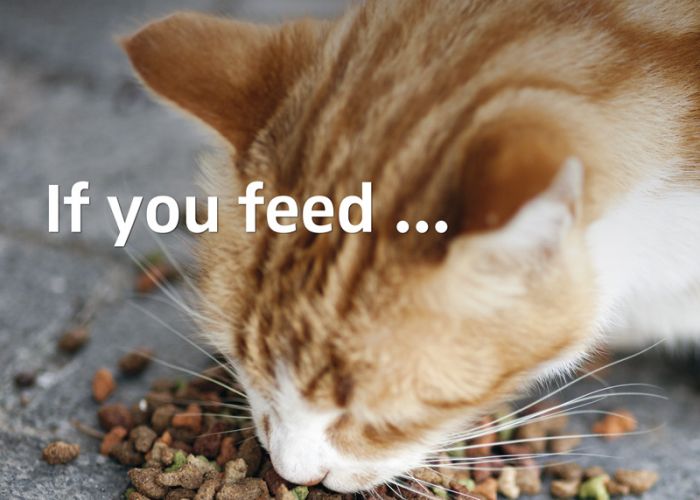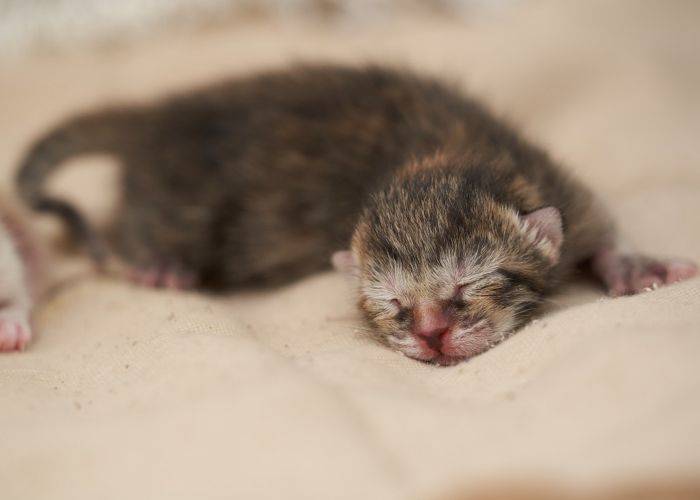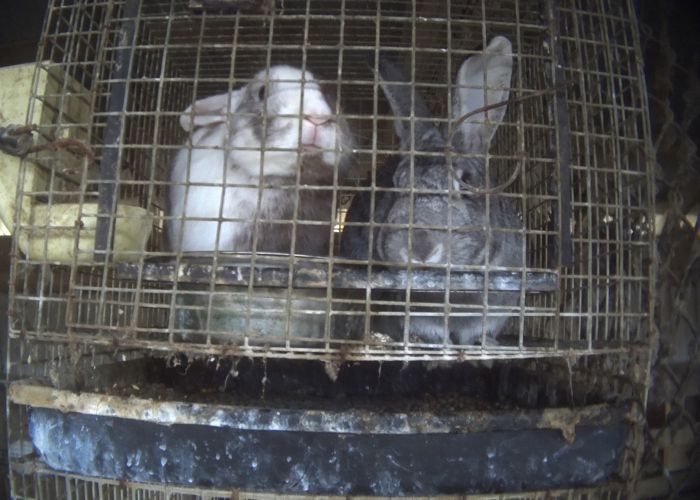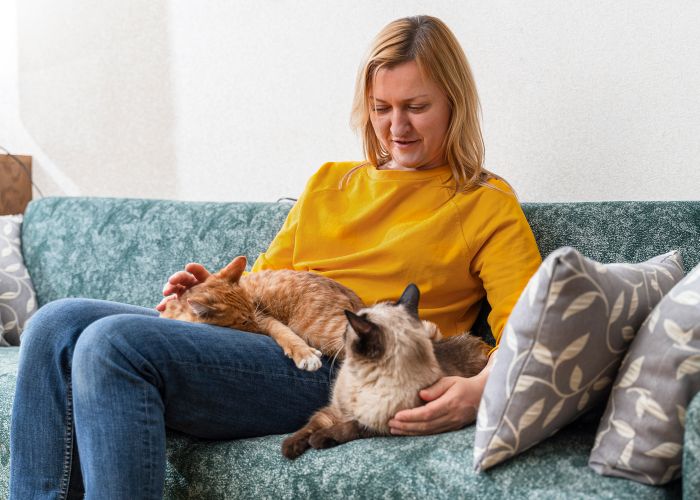Ask the expert: Jackson Galaxy
‘The Cat Daddy’ shares his thoughts on access to care and other animal welfare challenges
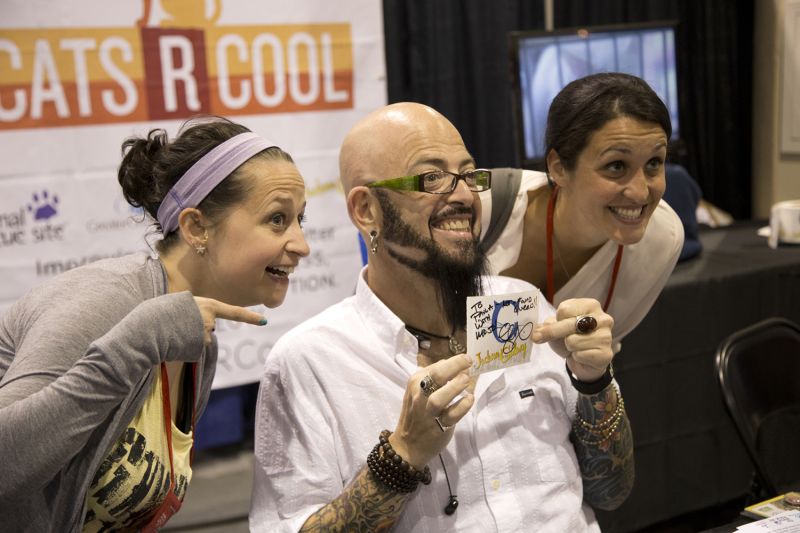
To answer a multiple-choice question about what Jackson Galaxy does, your safest guess is probably “all of the above.”
The celebrity animal advocate and feline behavior expert has worked in shelters and hosted and executive produced the long-running Animal Planet reality show My Cat From Hell, which features him visiting people’s homes to help resolve their pets’ behavior issues.
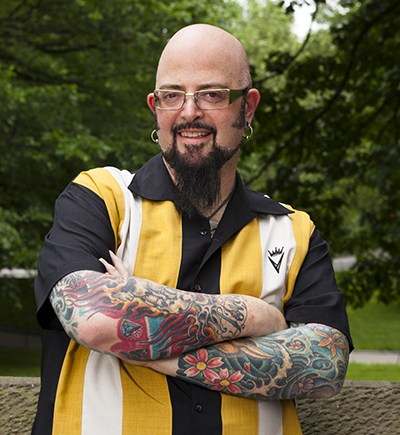
Widely known as “The Cat Daddy,” Galaxy has also written best-selling books, including Catification and Total Cat Mojo. Naturally, he’s all over social media.
But with all his success, Galaxy has never forgotten his sheltering roots. He’s brought his innovative cat-centric approach to more than 400 shelters, providing individual shelter consultations as well as programs such as Cat Pawsitive 360 through the Jackson Galaxy Project, a collaboration with Greater Good Charities. He also regularly presents at Animal Care Expo and other animal welfare conferences, helping animal advocates from around the world improve the lives of at-risk cats.
In this edited interview, Galaxy talks about his career, access-to-care challenges in animal welfare, and why we shouldn’t think of him as strictly a cat guy.
Everyone knows you from your work as a cat behavior consultant. How does that work intertwine with access to care?
I started my career in an animal shelter, and it’s the reason I work with cats today. Everything that I know about cats is filtered through the experience of animals in shelters and in crisis. Everything I’ve learned along the way about cats, I learned in relation to people in our community, who were often struggling with lack of access to veterinary care and were likewise not able to get meaningful behavior and training assistance.
In fact, these obstacles became the impetus for the part of my career most people are familiar with, which is doing house calls to help resolve issues between families and their cats. The shelter where I worked was getting absolutely overwhelmed with owner-surrendered cats at the time. Knowing that many of the issues owners were facing were often easy fixes, I asked my boss if it would be OK if I offered to go to people’s houses for an intervention of sorts. And it worked in many cases.
I kept the pet from coming into our shelter, and in an overwhelming number of cases, it wasn’t simply about fixing a “cat problem,” it was about the guardians’ frustrations being heard. That’s when I got my first reality check in terms of how some people were discouraged from owning a pet and even shut out of education about the animal family members they lived with. It was painfully obvious that people who very much loved their pets just couldn’t get the help they needed.
In those early days after beginning my home visits, I remember being surprised by how many pets I could keep from entering shelters just by meeting people where they were at and working alongside them to address their cats’ issues.
What are some of the challenges shelters face in making veterinary care and other pet care resources more accessible to underserved populations?
Animal shelters are in a pretty tough position right now, one that the pandemic threw us into and which has clearly had a lasting impact. So here we are doing more with less—finding it nearly impossible to keep up with what is now a huge need for shelter and community pet services. By and large, shelters are doing everything they can to support their communities through things such as trap-neuter-return, low-cost vet services, even food distribution.
That said, unfortunately, animal shelters still aren’t always seen as allies, and that old “dog pound” stigma is still following us. In the next couple of years, communities are going to have to focus on real collaboration to help make a meaningful shift both in people’s perceptions of shelters and the day-to-day reality. Success will mean people viewing shelters not just as the places that shelter animals but as the places that people turn to first to help them keep their families together and receive education and support.
The good news is that we’ve made a huge leap in that direction. We’re really approaching people with compassion and understanding. I travel to a lot of shelters, and I’m perpetually amazed by the care and love shown to both animals and people.
Shelters themselves often struggle with a lack of resources. Some are still in the cinderblock building out by the city dump, while others are in modern, centrally located facilities and with much larger budgets.
It’s interesting how that speaks to the whole access-to-care model. Some animal shelters don’t get the funding or attention that others do. Many of those same shelters take in large numbers of animals and don’t have the resources they need. We have to think about the pet needs in these overburdened communities in particular.
Also, if we want to grow and evolve as an animal welfare community, we have to remember that people like me, we’re aging out! We have younger generations of passionate people who want to make a career of helping animals and are being met with a really hard job. We need to find ways to keep more young people in this field.
The biggest thing that kept me in sheltering was that I felt valued. I was given opportunities. My ideas were met with, “Yeah, that’s a good idea. Let’s do that. Let’s try it—what do we have to lose?”
And that’s where true lifesaving is going to come from at this point. I think we need to devote ourselves to thinking out-of-the-box on one side and remembering what got us here, in a good way—the innovation that helped us progress from previous decades.
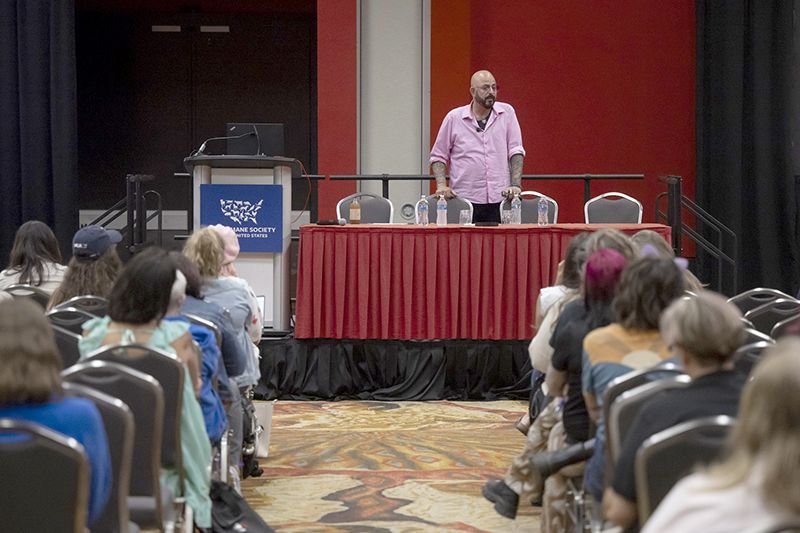
Why should we work on increasing access to pet ownership and pet care resources?
Everybody should have the experience of being a guardian to a nonhuman family member, because it teaches you so much. For people like me, it was lifesaving, literally. Bringing a sense of stewardship to my life is what saved it.
Unfortunately, there are a whole lot of people being shut out from knowing the love of a pet. And it’s not because they don’t want animals in their lives. It’s because they’re being told both explicitly and implicitly that they can’t have one. There are still those onerous adoption applications where you’re basically being told, “Hey, listen, if you can’t afford to have an animal, then you can’t have an animal.”
When you think about who we’ve become through the pandemic, we’re social media monsters now. We digest life in these little 12-second chunks. And the experience of guardianship over another being pulls you out of that. It adds a depth to the human experience that is important to us. I think there’s a richness to sharing your life with an animal that every family should know.
How can ordinary people improve access to care in their communities?
First of all, don’t hesitate to ask questions. It’s hard to ask for help, but it’s a lot easier to spot someone who needs help. Something as simple as volunteering to drive a family member’s or a neighbor’s animal to the vet makes a difference—don’t assume that people can do it on their own.
We’re all part of a community. You’ve just got to keep your eyes open and offer, as opposed to waiting to be asked.
Is there anything you’d want people to know about you that they don’t already know?
Two things: One, to answer the question loudly and clearly, I have dog family members also, and I love dogs as much as I love cats. I share my life with a chicken who I love just as much as my cats and dogs, and I have a turtle who I love. Cats picked me, but I love them all.
The other thing that folks might not know is that I consider myself an advocate for all animals. I’m vegan and active in the animal rights world as well as the animal welfare world. And I travel a lot, so I know all of the great vegan restaurants in the U.S. at this point. Well, maybe not all of them, but I’ll sure have a good time finding out!


